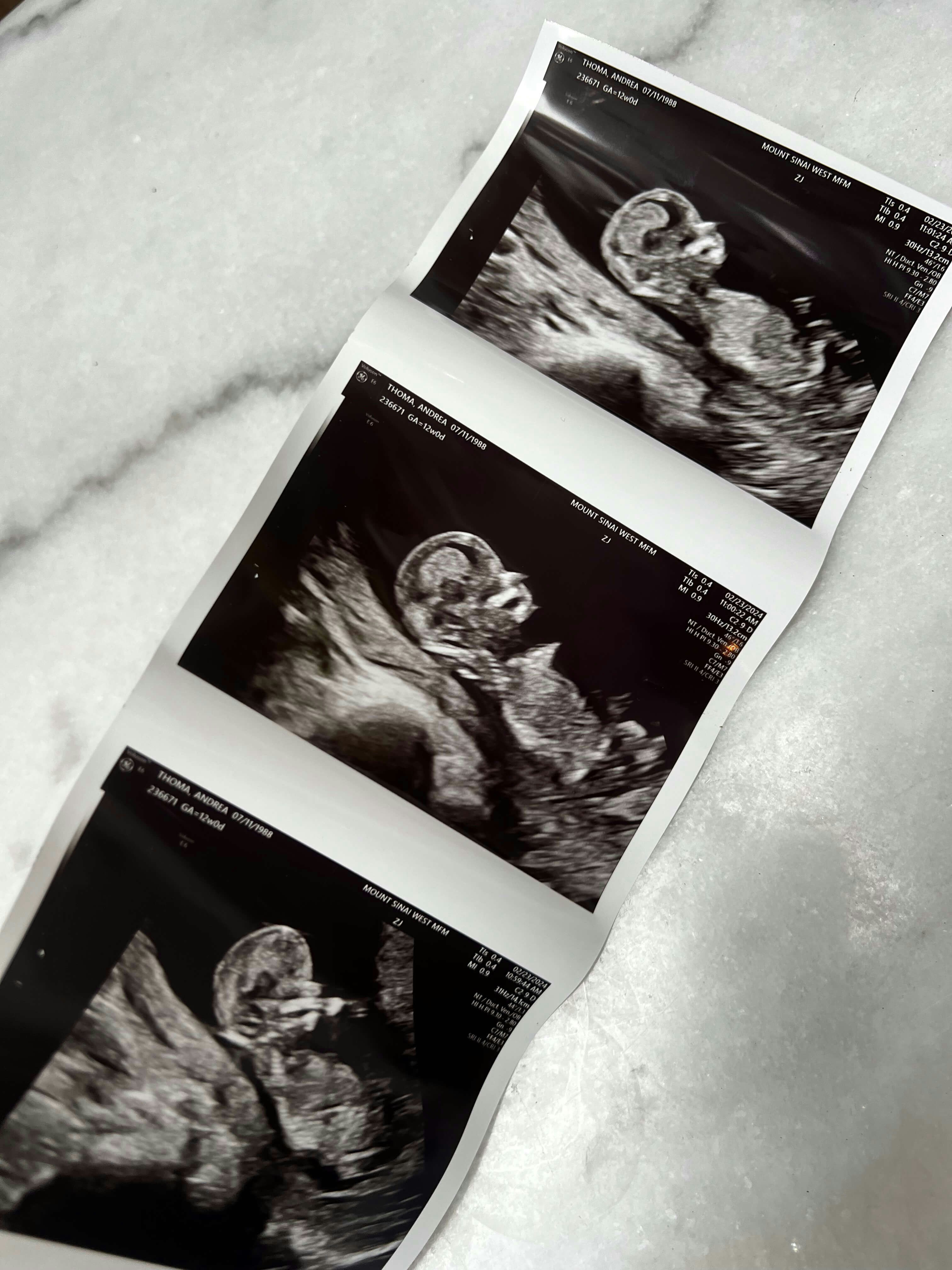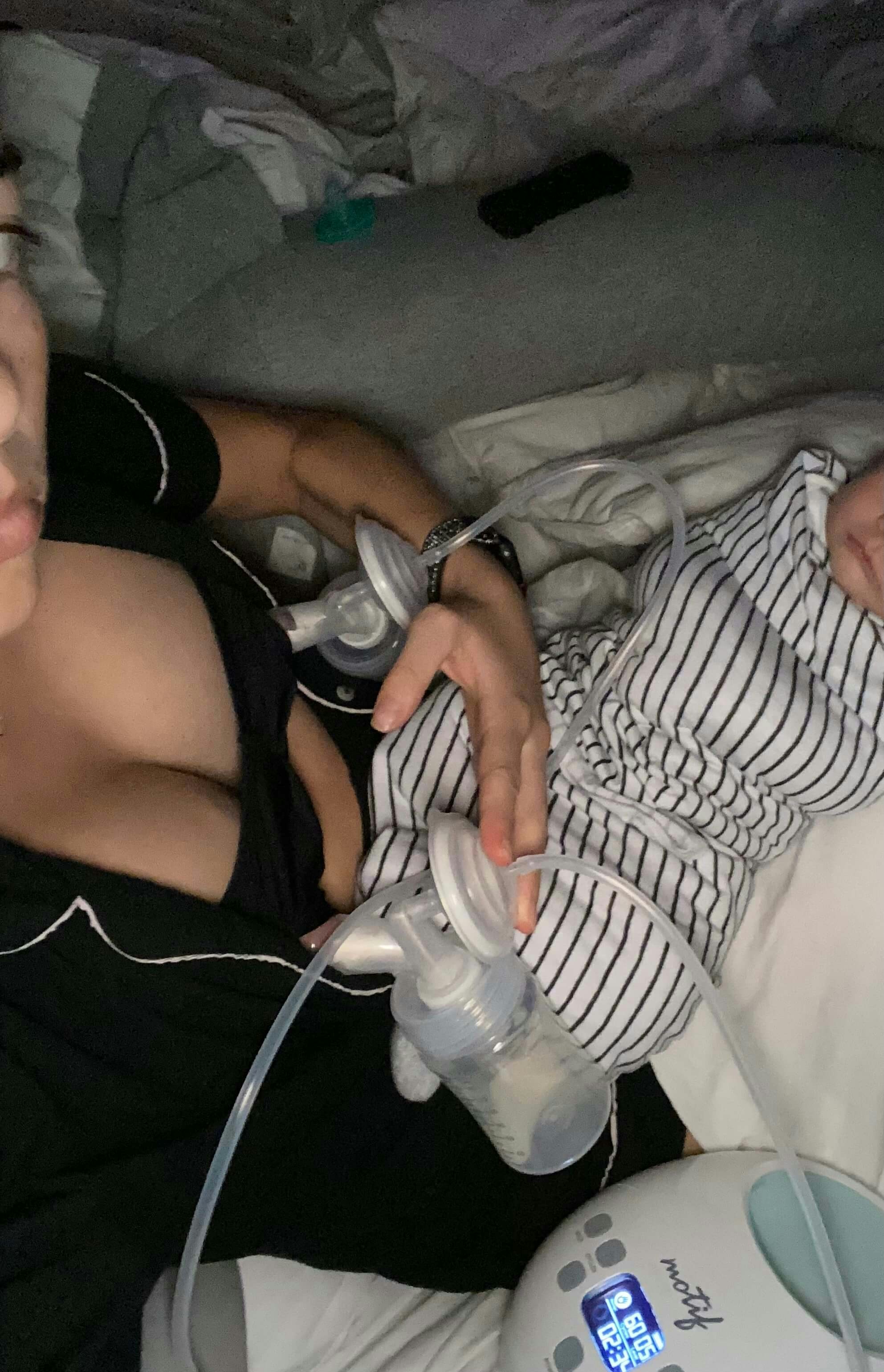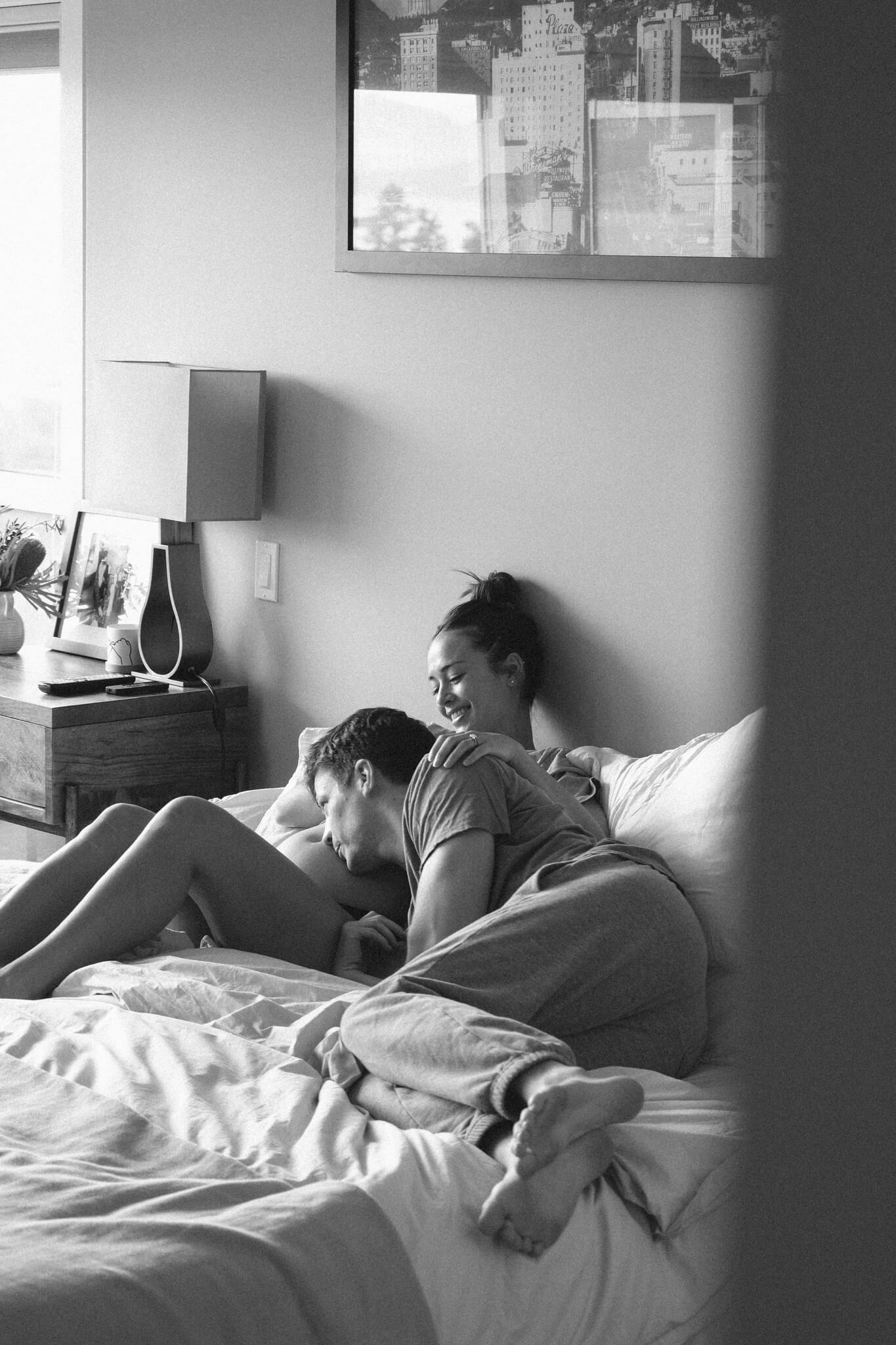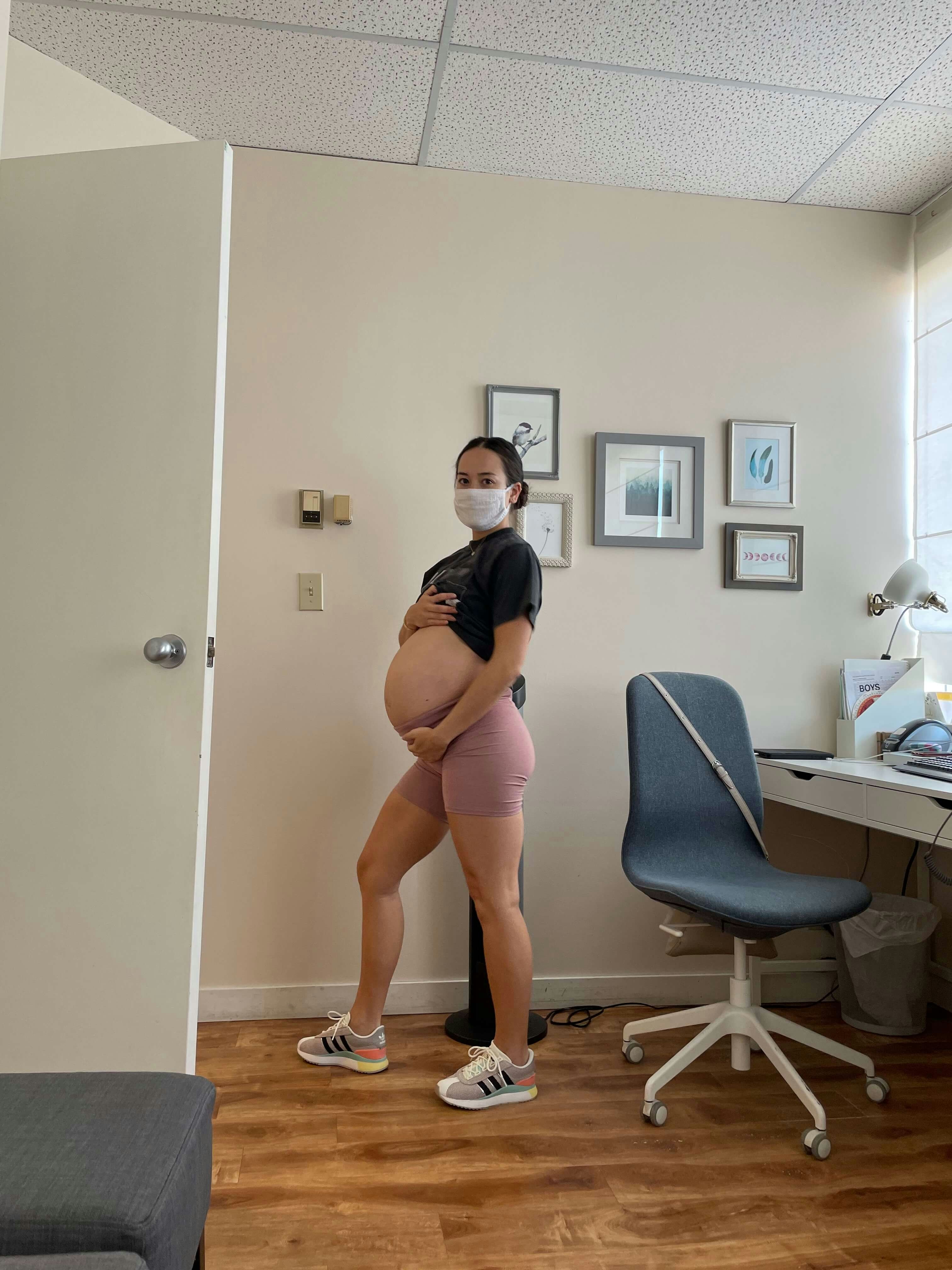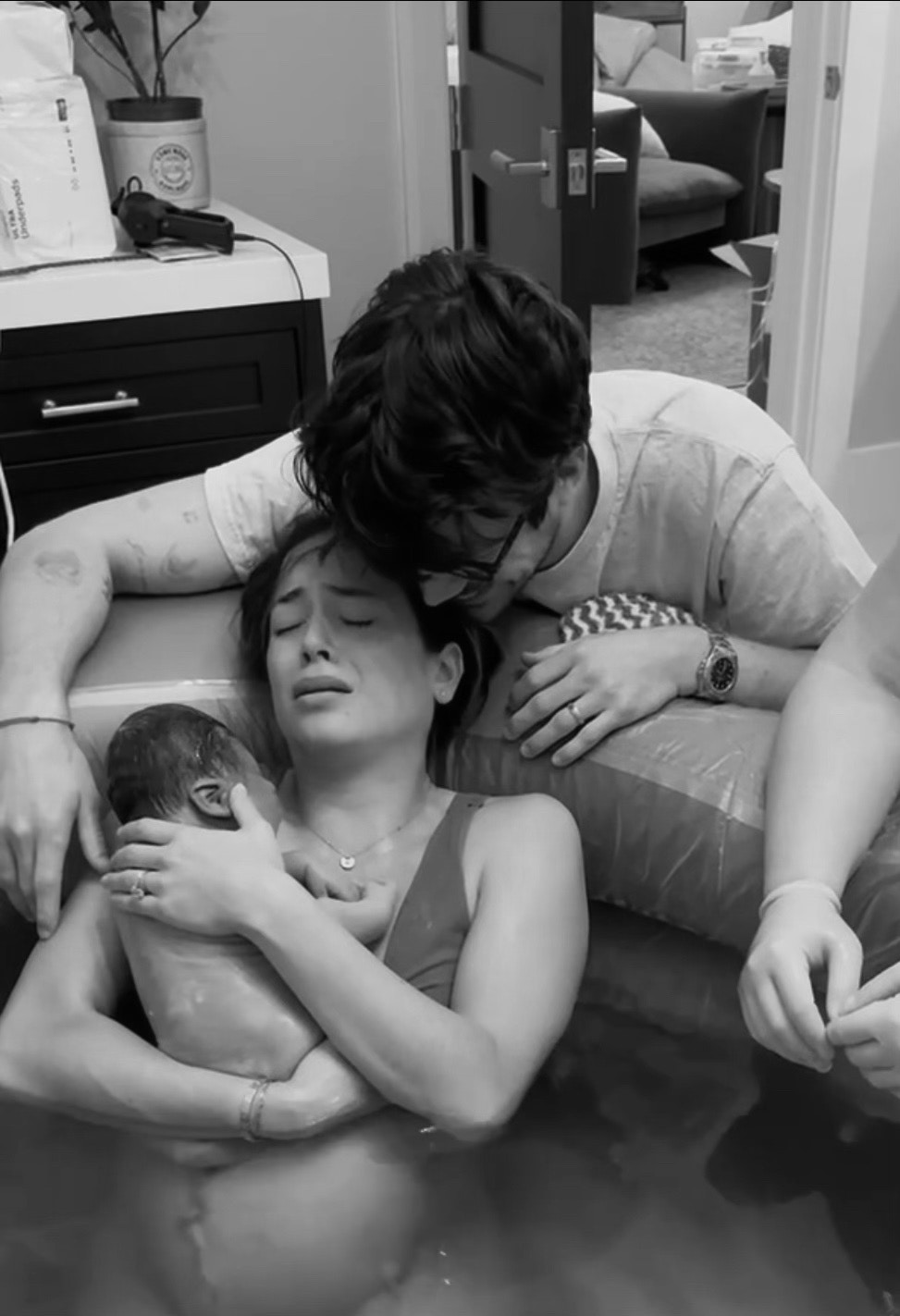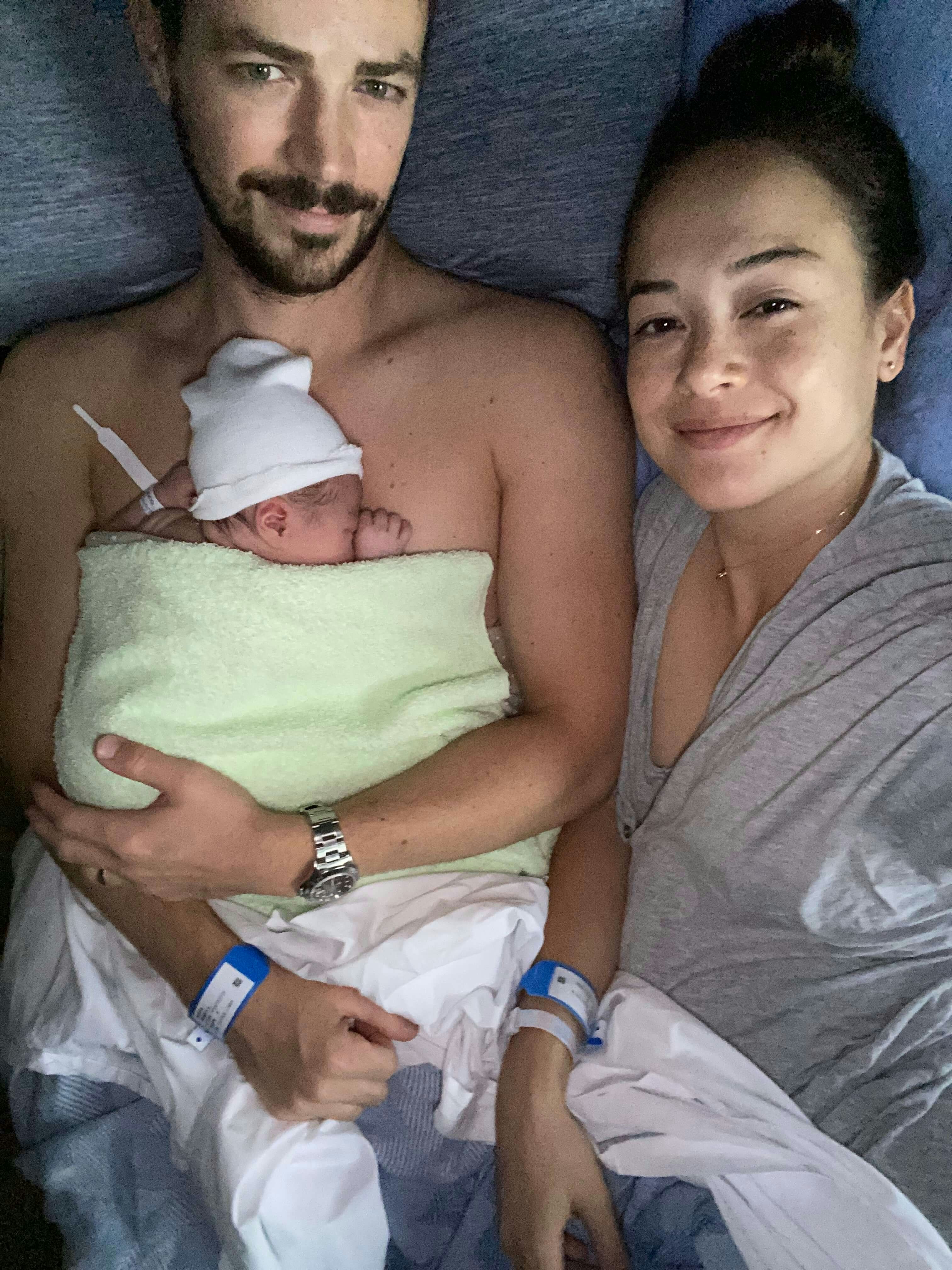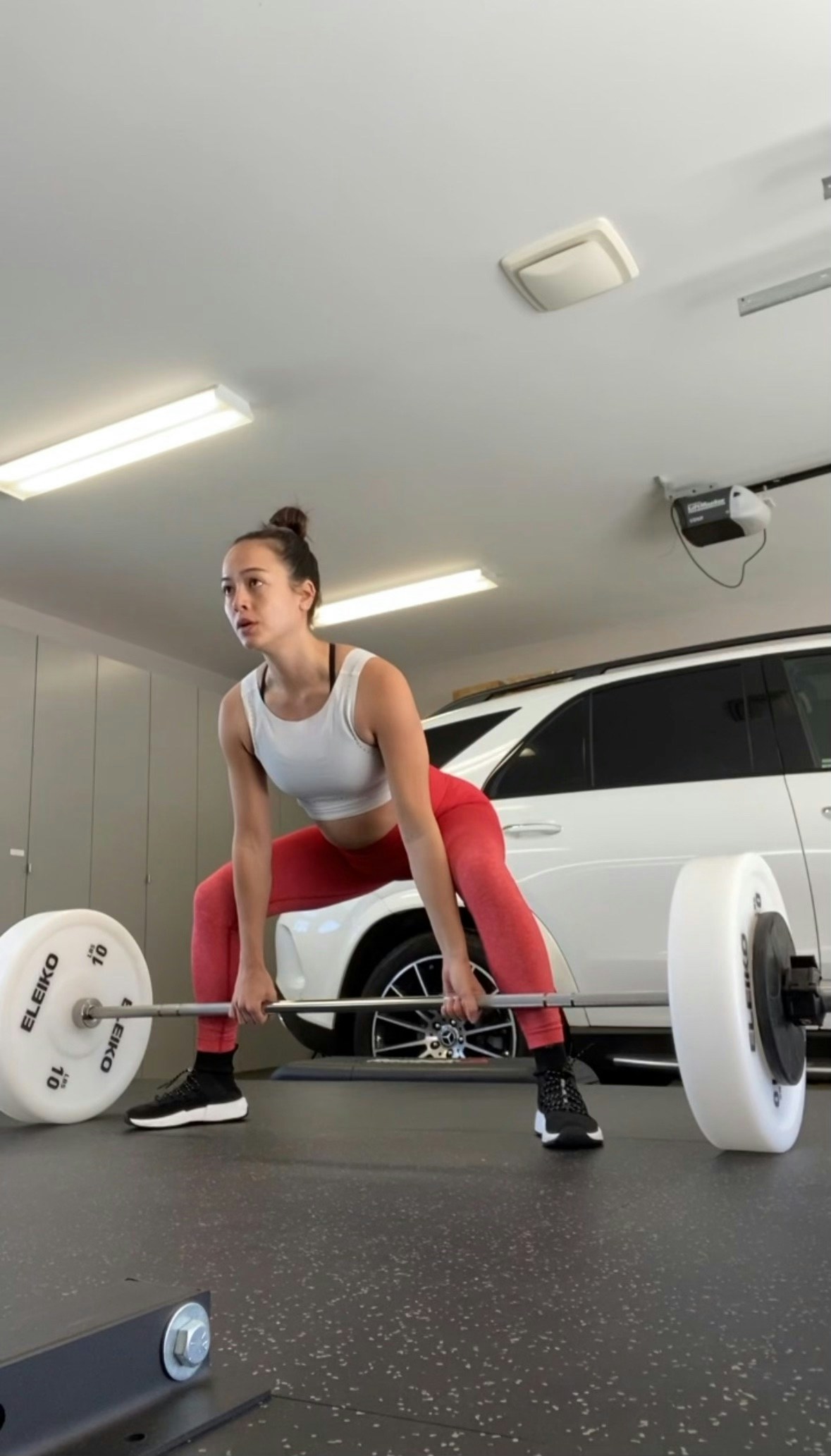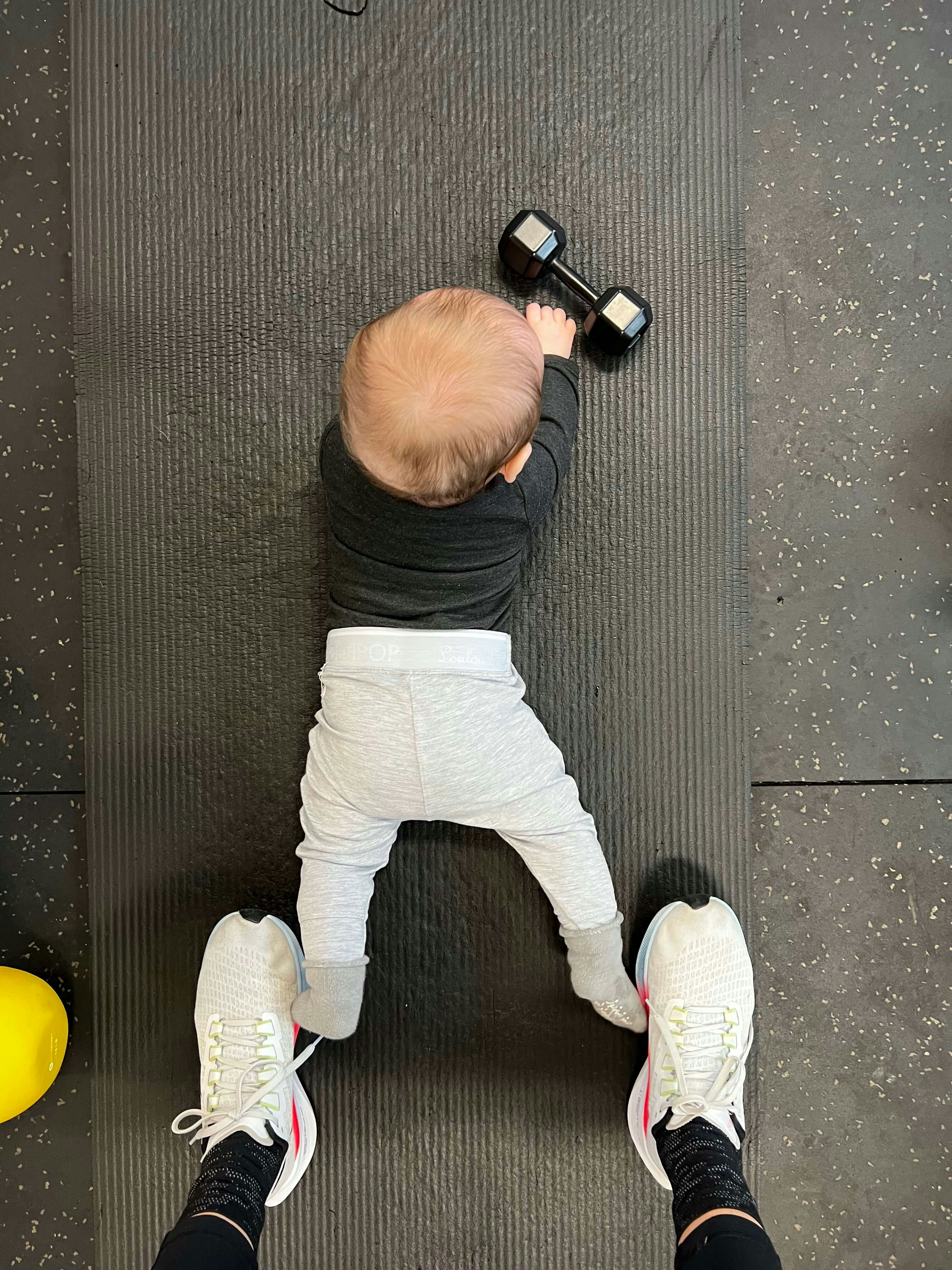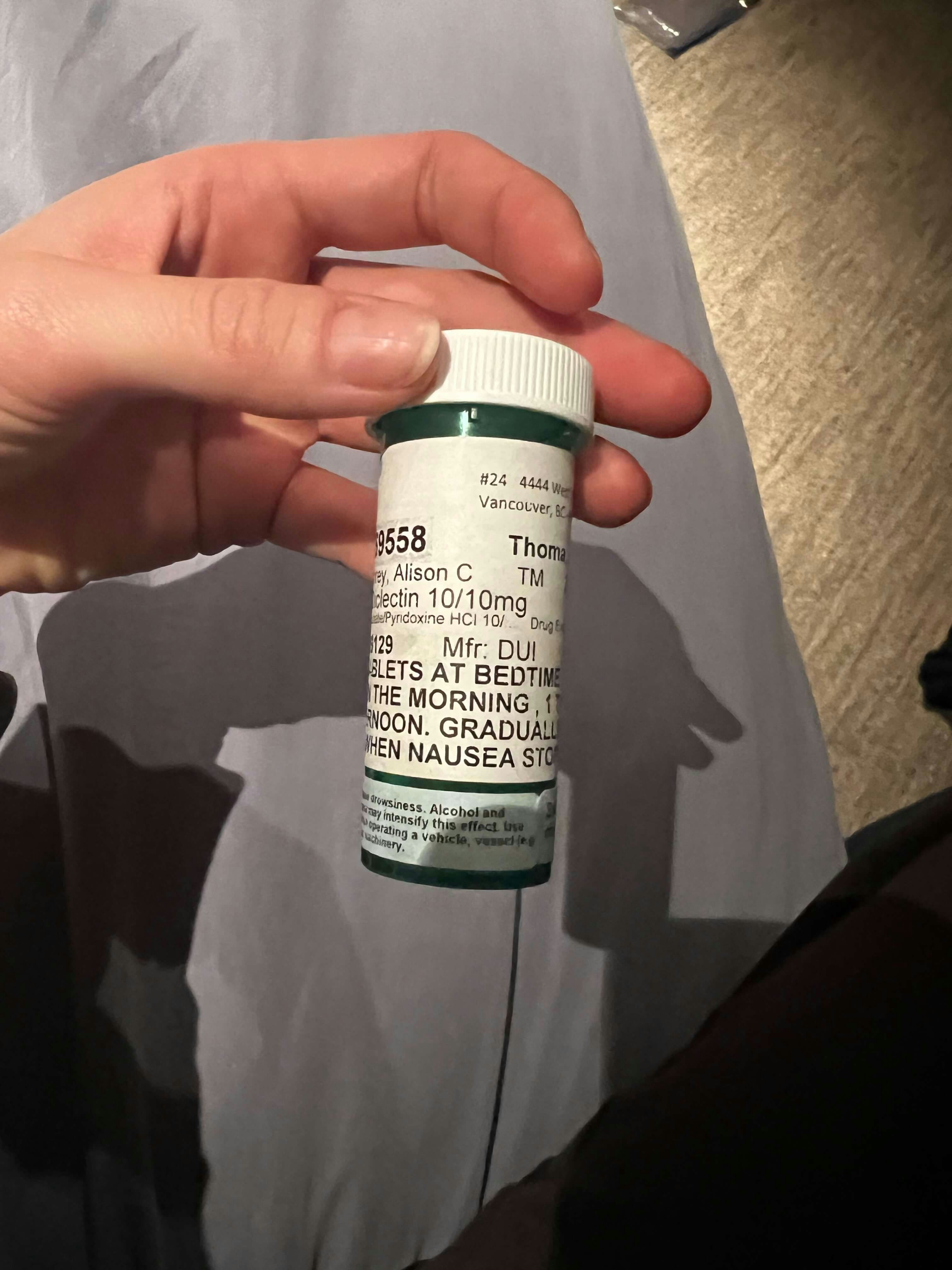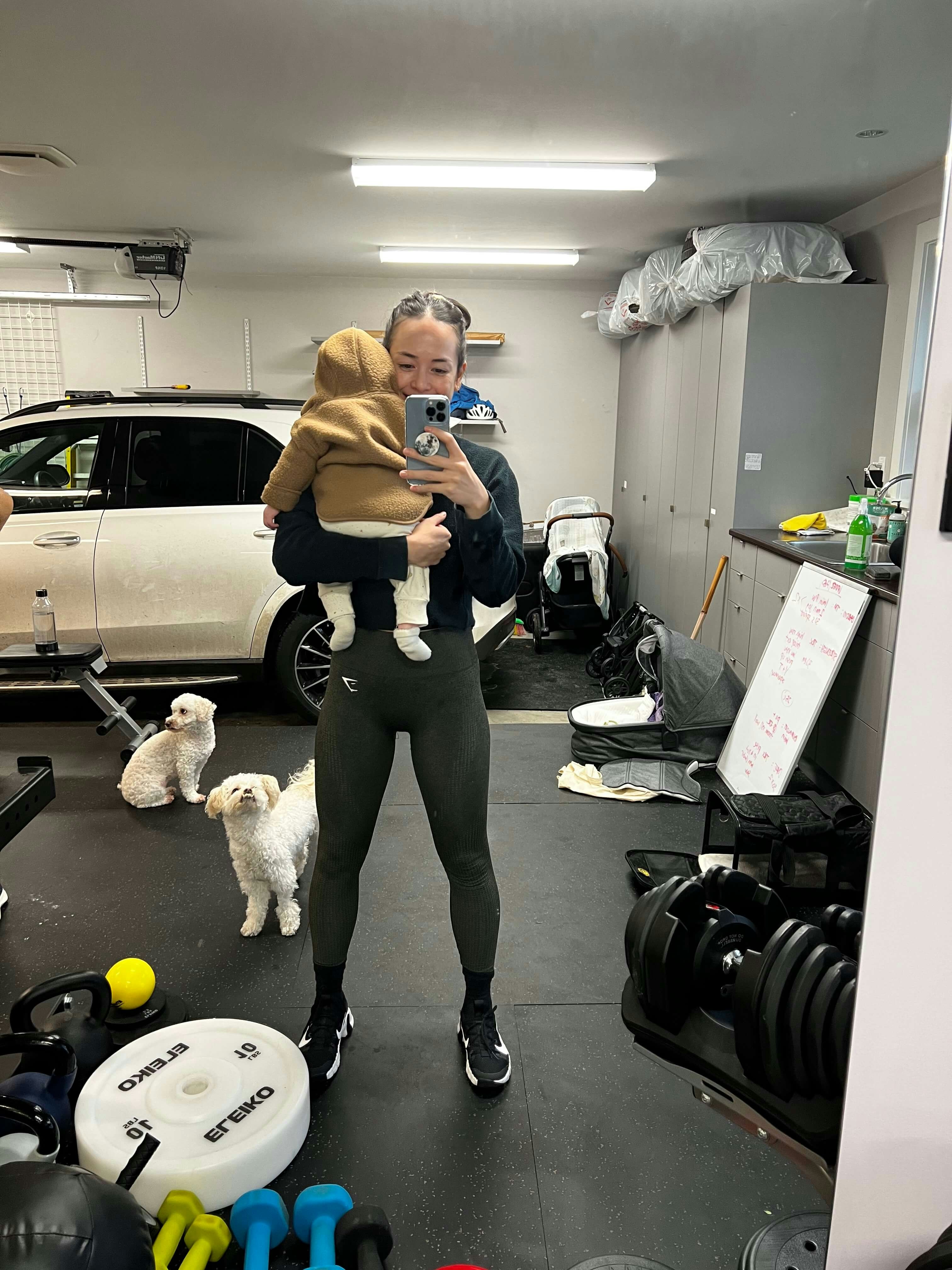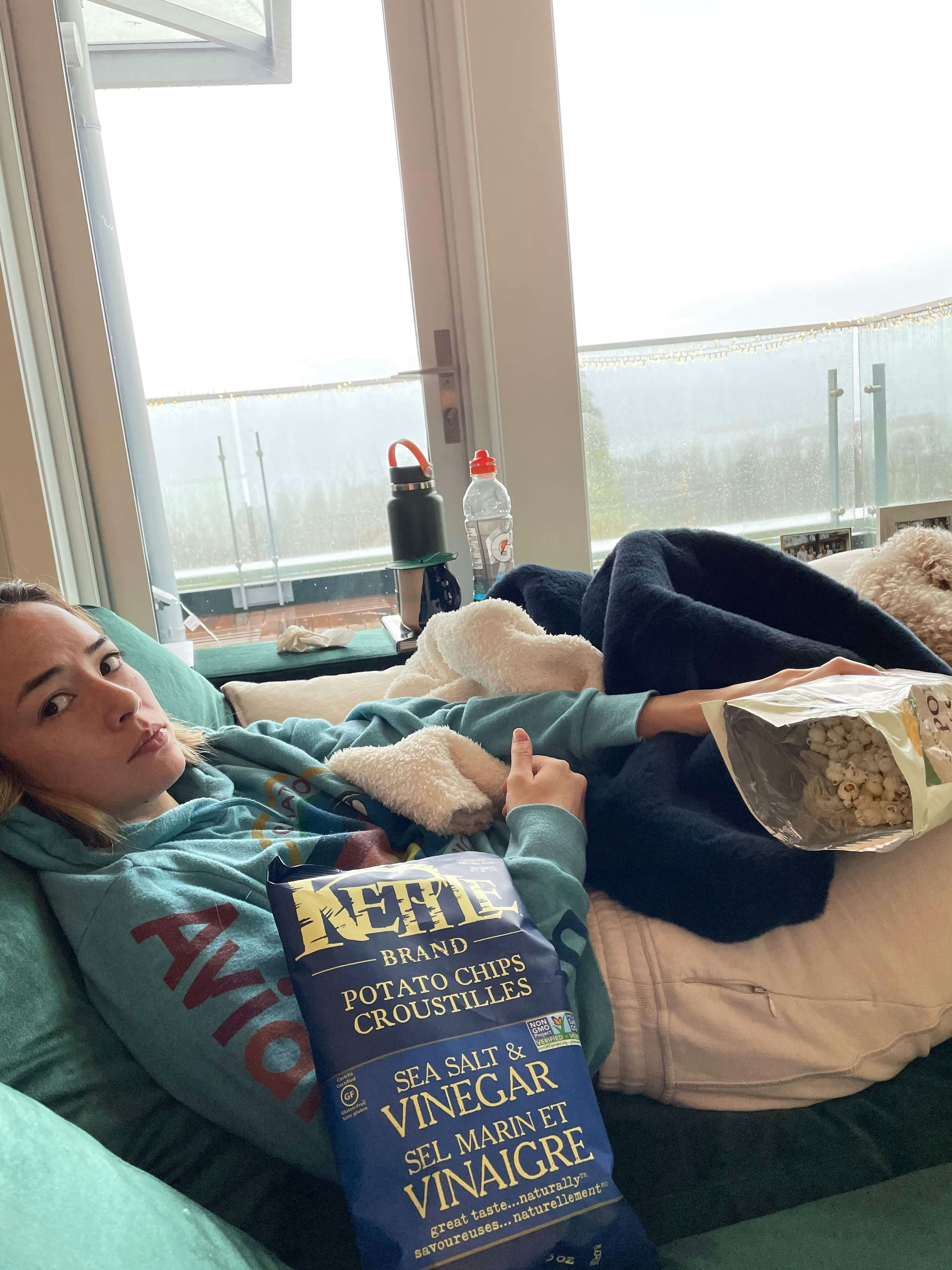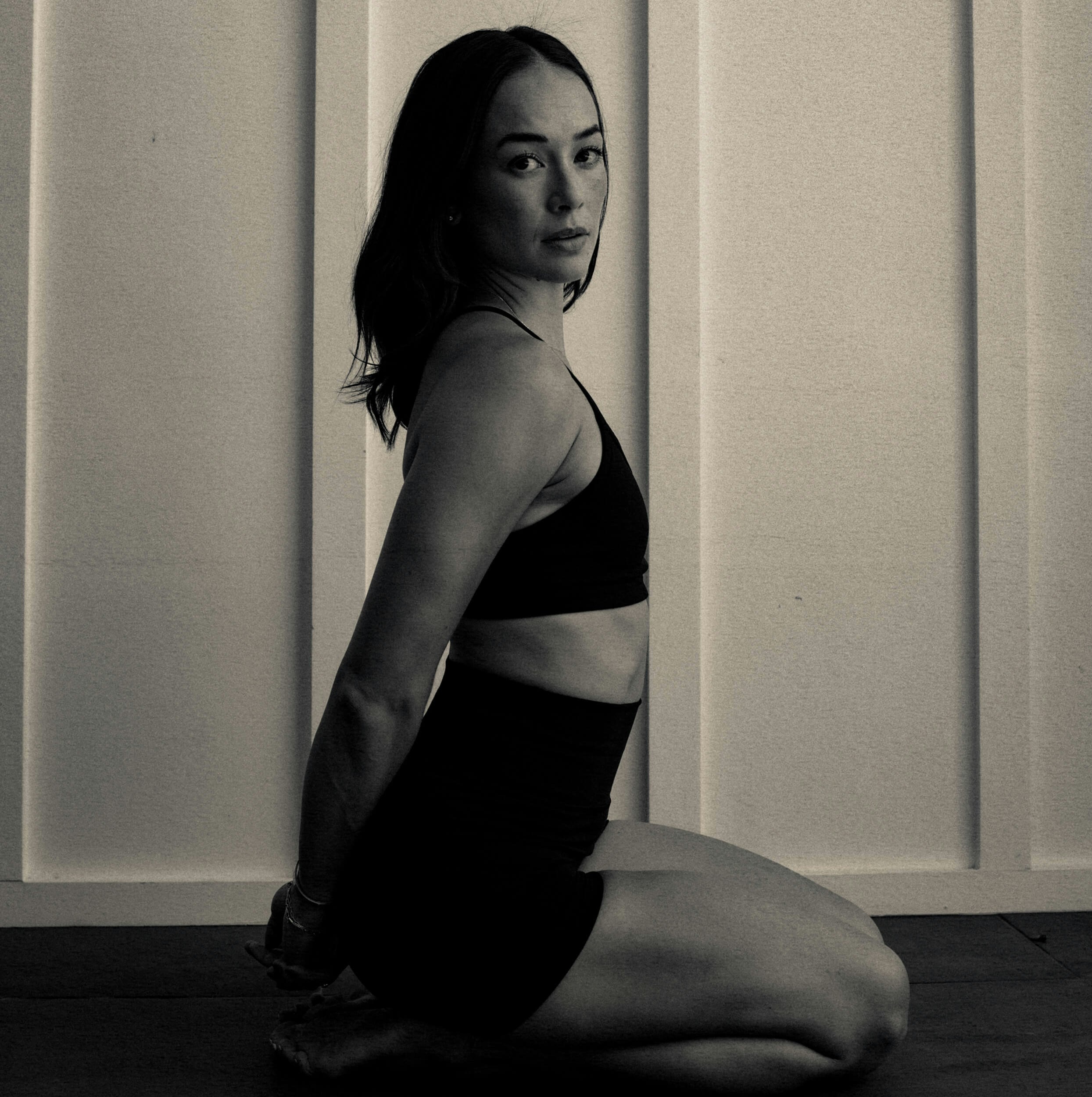
Getting Sticky With Dr. LA Thoma Gustin
Photos by Kanya Iwana, Words by AnaMaria Glavan
Pregnant women are pestered, constantly, about this idea of rest. The moment they break even the slightest sweat poof a peanut-gallery chorus appears with opinions on what they should or should not be doing with their bodies. The fixation on stillness feels especially strange when contrasted with the advice drilled in at every OB appointment: stay active.
Dr. LA Thoma Gustin shares that perspective. A lifelong athlete, physical therapist, personal trainer, and mother of two, she built a following through fitness videos but always knew she wanted to expand that work into something bigger. The idea for an app was already in the works before she became pregnant. But pregnancy shifted her thinking: it challenged her to consider how Dare To Be Active (DTBA) could better serve women in this particular chapter of life. Now, it’s a platform that adapts to every stage of life, whether training at a high level or navigating pregnancy and postpartum recovery.
Because while no two pregnancies look the same—as anyone who has read a single STJ feature knows, birth plans have about a 0.1% chance (!) of going according to plan—the truth remains: the pregnant body is strong. It adapts. It endures. And it shouldn’t be underestimated.
Below, Dr. LA Thoma Gustin on once anticipating having five kids but feeling at home with two, the ebbs and flows of romantic relationships after children, and why pregnancy (≠) athleticism.


Nixing the Brady Bunch plan
I always thought I’d do what my mom did. She had three of us back-to-back before 30, and both of my parents come from big families. I thought I’d have a ton of babies and that I’d have them before 30. That was my plan. Then my late 20s came, I finally met my partner, and I didn’t get married until I was 30. I had my first at 32.
And after that first, with a really tough pregnancy and a hard postpartum, I decided I could only go through that one more time. I went from wanting five kids—that was my thing, people would say, LA wants five kids—to saying, Actually, I think I can only do two. And I feel so happy that I’m done having kids. I’m so fulfilled with these two children. It’s different from what my mom did but I couldn’t imagine it any other way.
I’d like a word with Fertile Myrtle
I had a hard time getting pregnant the first time around. That was a shock to me. My mom, my aunts… everyone in my family seemed like “fertile myrtles,” just constantly having babies. I was diagnosed with unexplained infertility, like so many of us are these days. We tried the IUI process, and during that they found a polyp on my uterus, which led to surgery. After that, I told myself I was done taking hormones for a while because my mental health was really suffering. This was during COVID and I just couldn’t do it anymore. I ended up getting pregnant naturally. I think the surgery helped.
I developed hyperemesis gravidarum and it nearly broke me. I’m usually pretty tough when it comes to getting sick or dealing with injuries, but this was something else. I was puking 15 times a day. My body was wrecked—tears in my stomach, my throat, my esophagus. I should have been hospitalized, but because of COVID restrictions, the doctors said I couldn’t go. They told me to sip Gatorade every three minutes to mimic an IV because I couldn’t even drink water. For months, I survived on those tiny sips. I remember taking a picture of the first glass of water I was able to drink later in pregnancy because it felt like such a big deal.
The day I gave birth to Juniper, the borders finally opened, and my mom was able to visit us in Canada. It was the first time I had seen her, or almost anyone, my entire pregnancy. She stayed with us for a while to help, thank goodness. Having her there after such intense isolation was the best thing ever.

"I had a hard time getting pregnant the first time around. That was a shock to me. My mom, my aunts… everyone in my family seemed like “fertile myrtles,” just constantly having babies. I was diagnosed with unexplained infertility, like so many of us are these days."

A potentially controversial take: Los Angeles > New York (the STJ team is divided)
It was hard being pregnant, feeling sick, and having a toddler in New York. Coming from LA, we felt claustrophobic in New York. It was really tough.
One time my sister came to visit with her son to help out, and I went to pick up pizza around 6 p.m. I hadn’t been out at that hour the whole time we’d been in New York. Usually by then, we were starting Juniper’s bedtime routine. Walking to get that pizza, I suddenly noticed that everyone’s out, having drinks on patios, happy hour buzzing, nightlife starting. I thought, Oh wow, this is what I’ve been missing. Because by 6, I was always in the apartment, already winding things down.
We were strict about bedtime—she was a 7-to-7 baby, down at 7 p.m., up at 7 a.m. Our son is not like that, but with her, we were really regimented. We valued that nighttime alone time so much. Looking back, sometimes I wish we’d been more flexible, gone out to dinner, come home later. But COVID made us so strict. We were home all day, on a schedule, and that carried into how we parented. We just weren’t a “go with the flow” family then. With him, we’re a little more flexible now because life demands it, but with her, everything was regimented.
"We were strict about bedtime—she was a 7-to-7 baby, down at 7 p.m., up at 7 a.m. Looking back, sometimes I wish we’d been more flexible, gone out to dinner, come home later. But COVID made us so strict. We were home all day, on a schedule, and that carried into how we parented. We just weren’t a “go with the flow” family then."

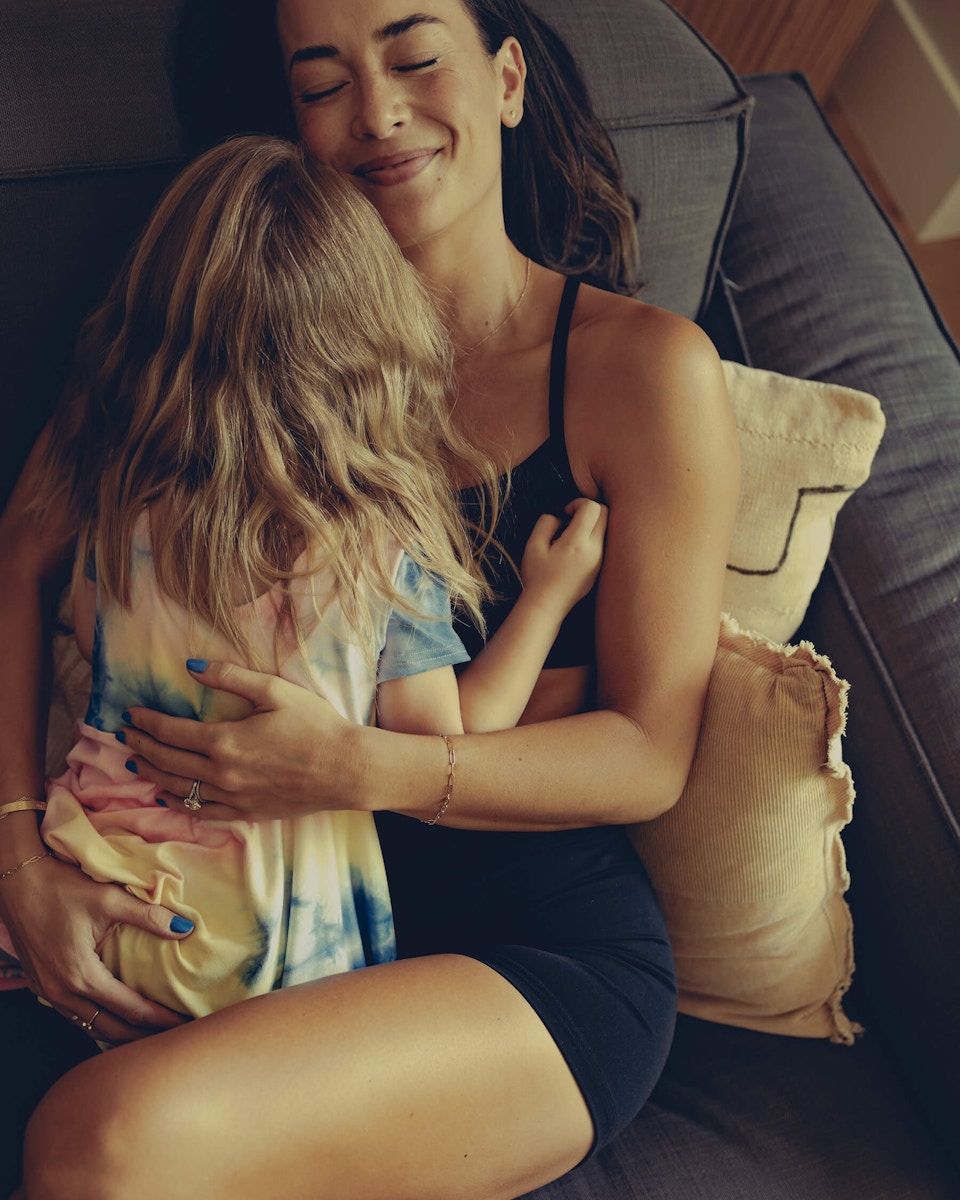
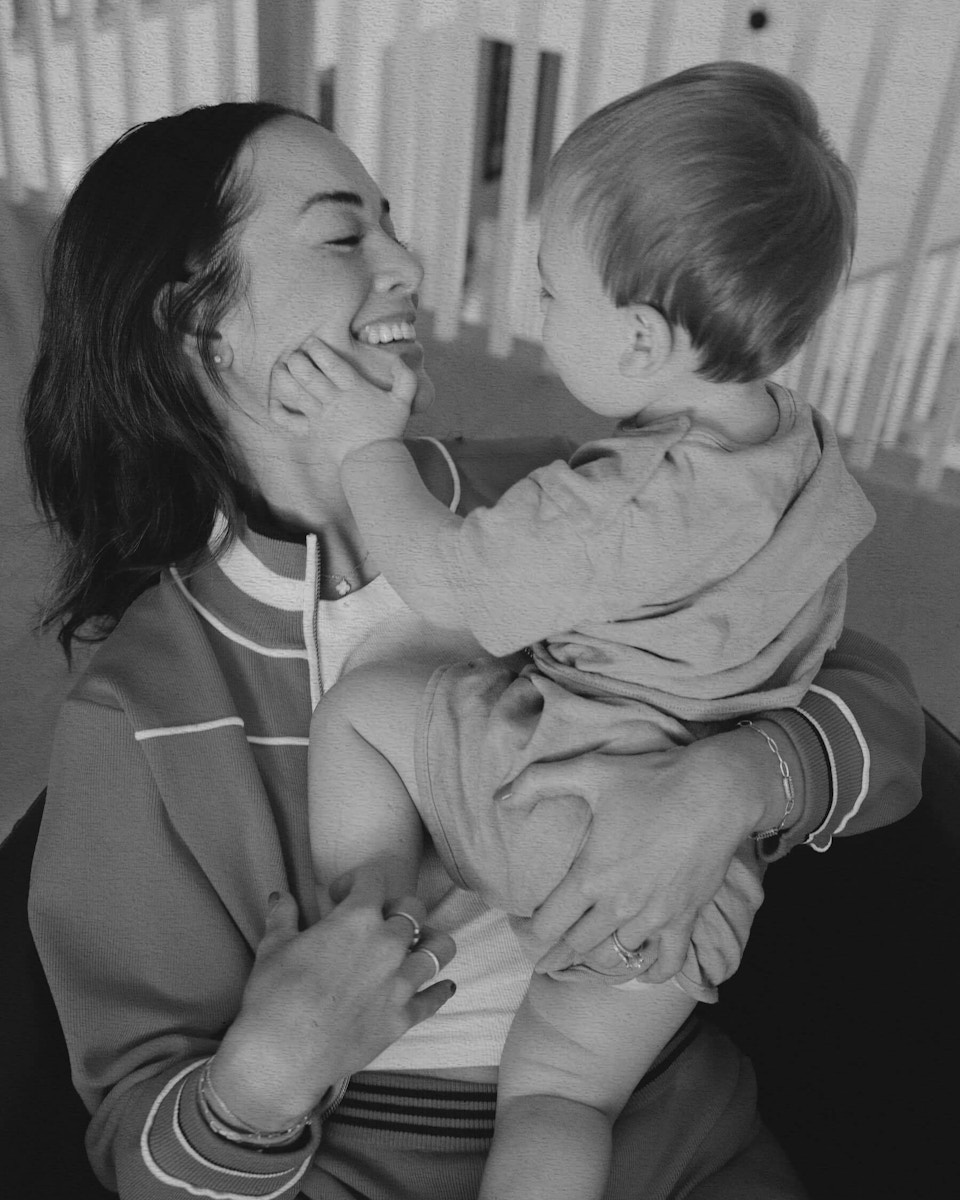
“It’s all intense, and it’s also not forever”
I’m not going to lie… relationships after kids are hard. Grant and I haven’t set up a routine where we go out once a week, but every time we do, we say, We need to do this more, we need to put it on the calendar, because if you don’t, it doesn’t happen. Last-minute babysitting and last-minute logistics just don't work.
One important perspective I can share about the postpartum period, now that I’ve gone through it twice, is understanding that each time is its own chapter. It’s going to be different, it’s going to be hard, and you might not feel as connected to your partner as you did before. Right now, your kids are your entire life.
We’ve been through really hard times as a couple. We’ve seen a therapist. And what’s helped us this time around is knowing that the postpartum period is temporary. Hormones, mental health, physical recovery. It’s all intense, and it’s also not forever.
Every woman I know who’s in this same chapter feels it. We don’t love our bodies. We feel crazy. Our hormones are everywhere. We don’t feel like ourselves. It’s confusing, because you know why it’s happening, but you still can’t make sense of it in the moment. And then I look at older friends who are in another season—they feel good again, their kids are independent, their marriages are thriving. Seeing that gives me hope and perspective.
You put everybody before yourself, and your partner does too. You’re both trying to figure out: how do I take care of myself, while also taking care of you? And how do we take care of the kids on top of it all? It’s a constant recalibration. Some days are better than others, but you just keep working at it.
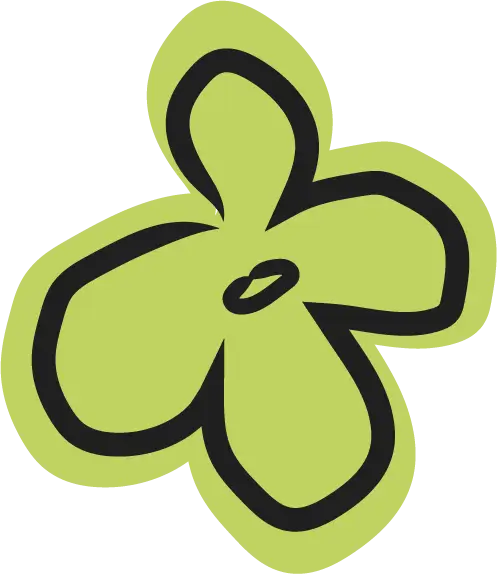
"Every woman I know who’s in this same chapter feels it. We don’t love our bodies. We feel crazy. Our hormones are everywhere. We don’t feel like ourselves. It’s confusing, because you know why it’s happening, but you still can’t make sense of it in the moment."
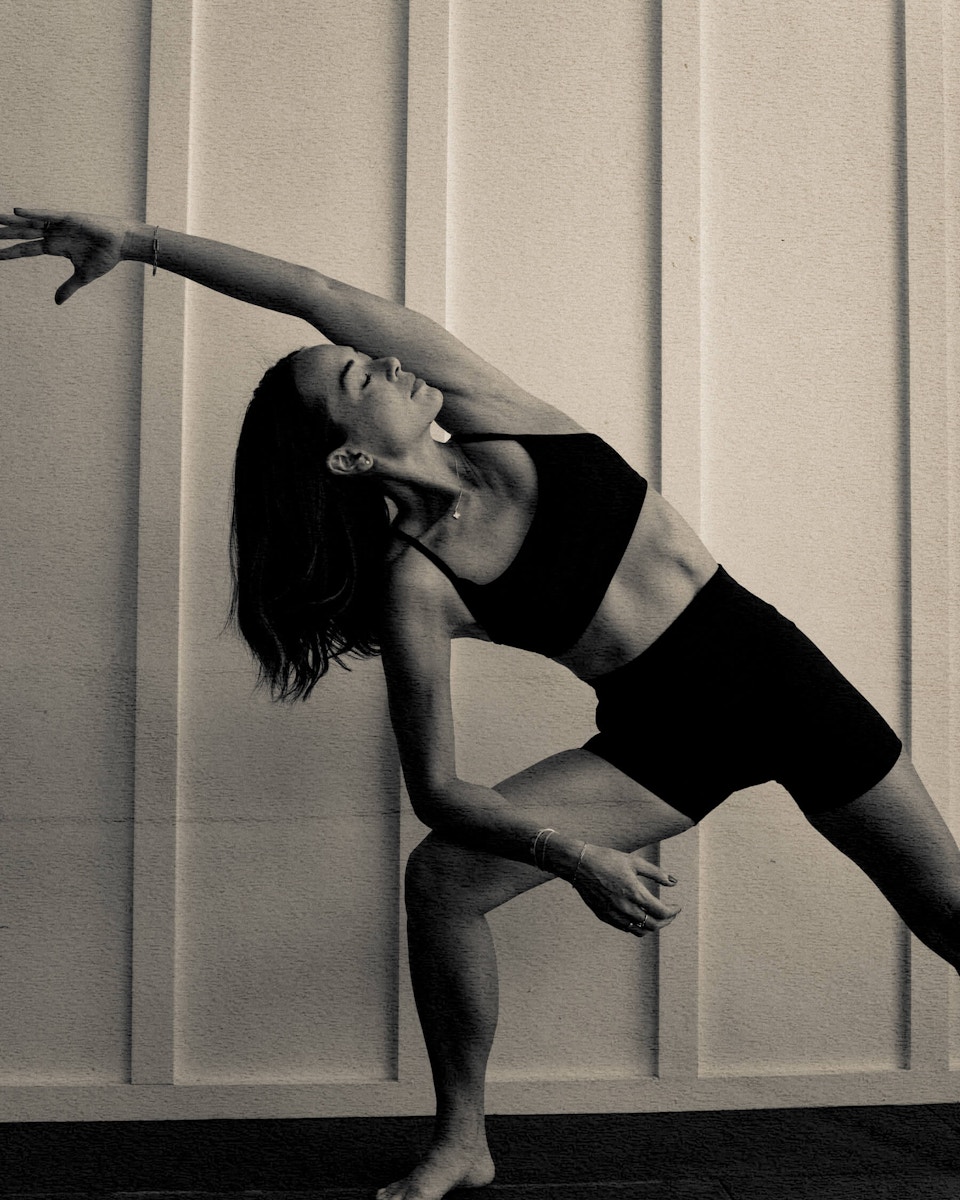
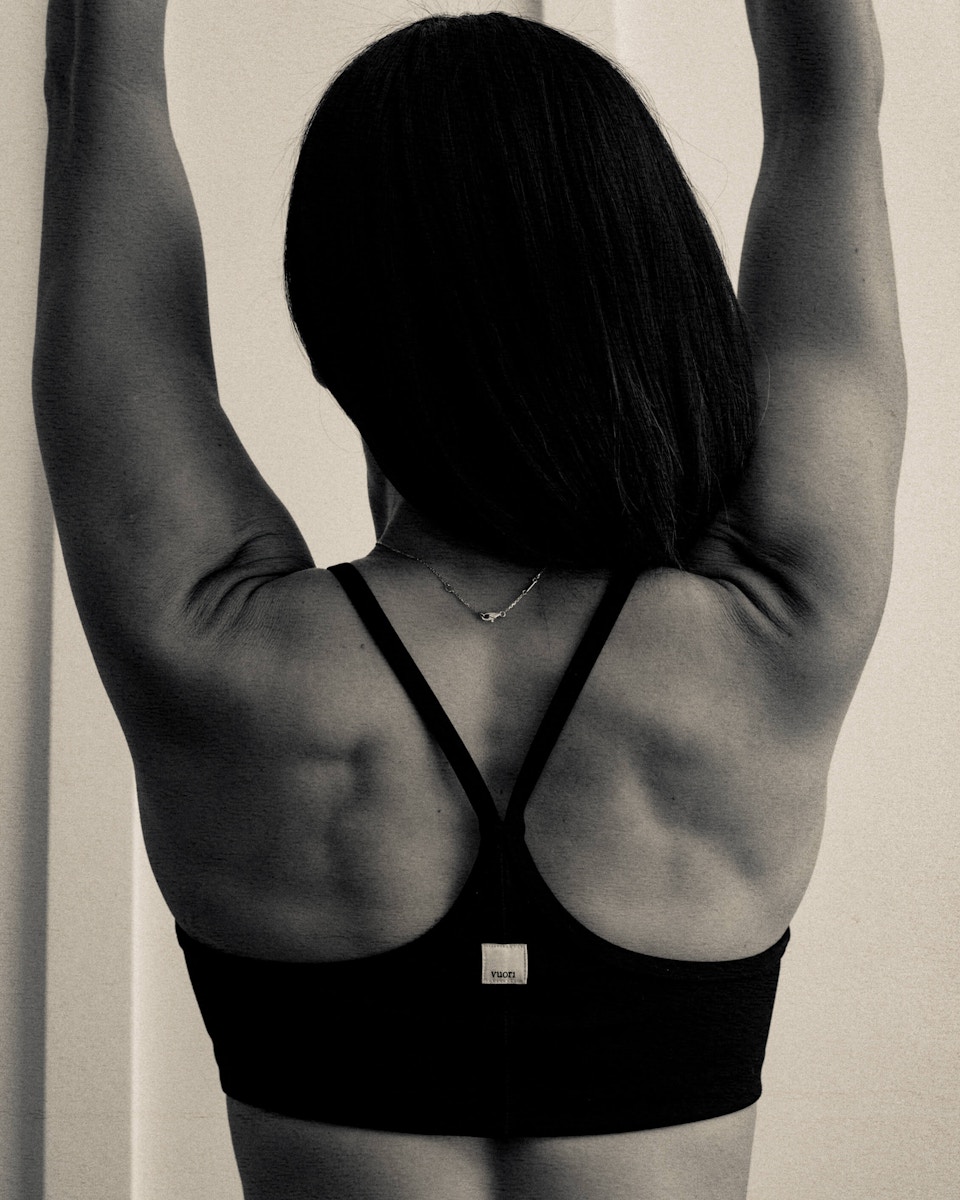
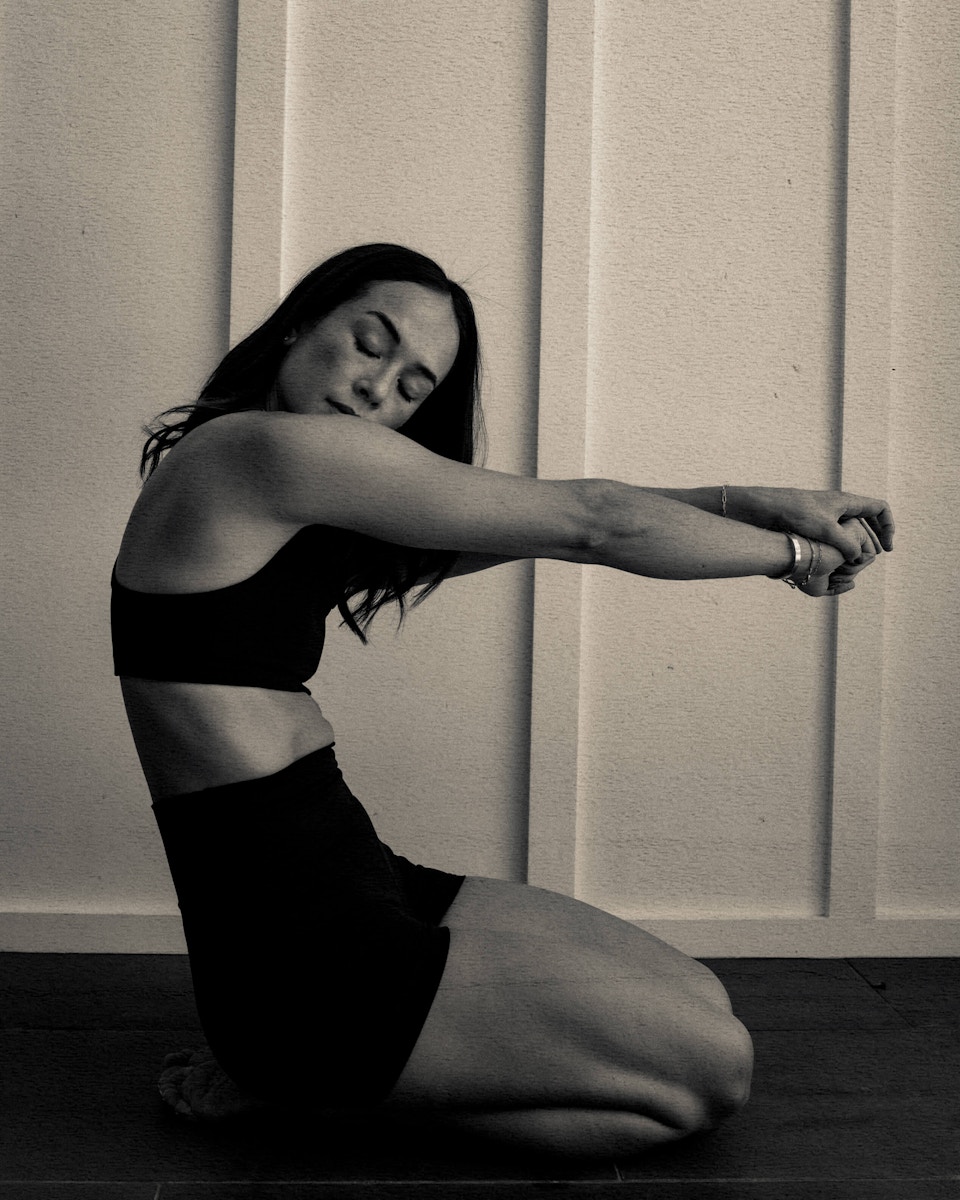
Pregnancy (≠) athleticism
I’ve been an athlete my whole life and I approached pregnancy and birth with that same athlete mindset. I really believe women should think of it that way, too. Pregnancy and birth are some of the most physical things your body will ever go through. I trained for it: stretches, breathing exercises, strengthening, relaxation work.
Of course, there’s the reality that you can prepare as much as you want, but your journey will be what it is. Things don’t always go according to plan and you have to be ready for that. But even if you plan for a vaginal birth and end up with an emergency C-section, the strength work, the pelvic floor control, and the conditioning all carries into postpartum. That preparation makes recovery easier and helps you get stronger over time.
My second time around was different. I did less. Not by choice, but by circumstance. I didn’t have hyperemesis gravidarum, but I was still very sick and had a lot more pain toward the end. I didn’t feel as strong or prepared as I did the first time. Then postpartum, I ended up on strict bed rest for a week; horizontal bed rest, not even sitting up. I had to be fully reclined.
"I’ve been an athlete my whole life and I approached pregnancy and birth with that same athlete mindset. I really believe women should think of it that way, too. Pregnancy and birth are some of the most physical things your body will ever go through. I trained for it: stretches, breathing exercises, strengthening, relaxation work."

There’s so much misinformation about the pregnant body
I wasn’t pregnant when I started my app, Dare To Be Active (DTBA). My whole idea at the beginning—even before the app, when I was just posting on YouTube and Instagram—was based on being a physical therapist, sharing that knowledge, and combining it with fitness.
I was trying to balance putting out videos that weren’t pregnancy-related. I built the app around fitness and physical therapy, but because I’ve been pregnant the entire time I’ve been building it, the app essentially became a prenatal app. At one point, almost all of my videos were pregnancy and postpartum related.
That’s why we now have a full pre- and postnatal section on the app. It’s broken down by trimester, and instead of giving a week-by-week schedule, we guide you through each phase. The last thing I want is for someone to feel pressured to hit a checklist by a certain week. I want people to understand they can probably do more than they think. Our bodies are strong and resilient. Pregnancy doesn’t mean you have to settle for pain or feel like you can’t function the way you did before. Being pregnant is not a handicap. You can still do so much to prepare, not just for birth but for recovery after.
We’ve launched a postnatal core program; a step-by-step progression designed to rebuild your core and pelvic floor postpartum. Whenever I see stories of women running marathons or training hard while pregnant, I also see how much they get shamed for it. People always ask, Is this safe? Even when I post something as simple as teaching women how to properly engage their core—like exhaling to activate—people comment, You’re smooshing your baby.
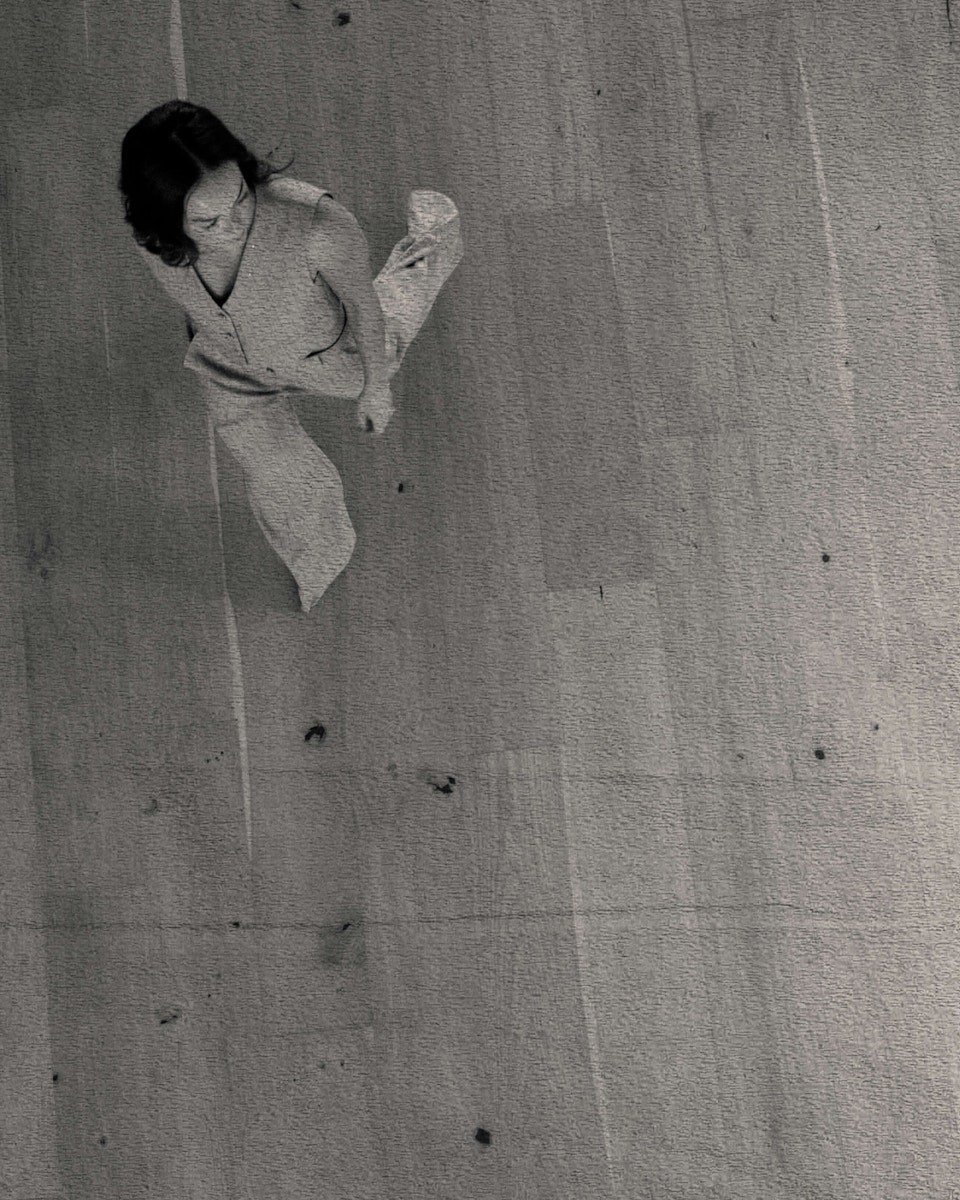


" I want people to understand they can probably do more than they think. Our bodies are strong and resilient. Pregnancy doesn’t mean you have to settle for pain or feel like you can’t function the way you did before. Being pregnant is not a handicap. You can still do so much to prepare, not just for birth but for recovery after."

You are STRONG. That caps lock is intentional.
There’s so much misinformation out there. We really need to keep putting out education to break people out of these outdated ideas; that exercise during pregnancy is automatically harmful, or that postpartum exercise will damage you. Women are constantly having to push back against these misconceptions. Our bodies are strong. With the right knowledge and gradual progression, exercise can be safe and hugely beneficial during pregnancy and beyond.
There’s so much I can offer, and I love that spaces are being built where we can all chat and share. I get so excited when opportunities come up to lead classes or connect with women in this stage of life. Being around other women who are in the same window of pregnancy or early postpartum is so intensely powerful. When you’re in that chapter, it’s so validating to hear others going through the same things. It makes you feel less alone.
